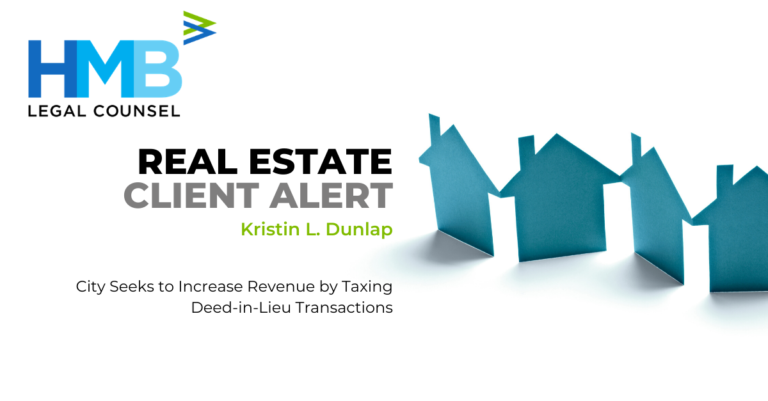In an effort to increase transfer tax revenue, the City of Chicago seeks to amend its Municipal Code in a manner that would result in tax liability for some real estate investors on transfers of real property that traditionally have been treated as exempt transfers.
The City's proposed amendments come on the heels of several unfavorable Department of Administrative Hearing decisions for the City of Chicago regarding the applicability of exemption M of Section 3-33. Exemption M pertains to transactions in which the deed is issued to a mortgagee or secured creditor pursuant to a mortgage or security interest foreclosure proceeding or sale or pursuant to a transfer in lieu of foreclosure (i.e., a deed-in-lieu transaction).
Read MoreTransfers that qualify under exemption M are exempt from the City of Chicago tax on the transfer of real property. According to the City, this transfer tax on transfers of real property generates approximately $125 million in tax revenue per year with an estimated $2 million in potential revenue that could be collected should the City Council vote in favor of the amendments.
In the administrative courts, the City argued that Exception M was never intended to provide a means for third party purchasers (e.g., real estate investors with no intent to act as a bona fide lender) to avoid the transfer tax. Instead, it claimed that the underlying premise of exemption M is to prevent mortgage holders from double taxation when simply acting to protect an investment – first, when the foreclosing lender is forced to acquire its borrower’s property at a foreclosure sale and second, when the lender is eventually able to sell the property to a third party.
In each of the three cases cited above, Administrative Law Judge Raymond Prosser held that the plain language of exemption M was unambiguous despite the City’s arguments as to the intent of the City Council when it enacted the ordinance. Accordingly, Judge Prosser ruled that the taxpayers (i.e., the third party purchasers) were entitled to the benefits of exemption M. The City has appealed all three decisions to the Circuit Court of Cook County.[1]
The proposed amendments would attempt to clarify what the City claims is the true intent of exemption M by prohibiting third party purchasers from escaping the transfer tax. While the amendments would preserve the rights of bona fide lenders under the ordinance, any party that takes an assignment of a mortgage or other security interest for the primary purpose of obtaining title to the property for developing, investing in or using the property itself would be subject to the transfer tax.
Mayor Emanuel submitted these amendments to the City Council for consideration on April 10, 2013. If approved by the City Council, the amendments would take effect upon passage.
[1] See City of Chicago v. New Water Park, LLC et al. (2013 L 050085); City of Chicago v. KTCP 225, LLC et al. (2013 L 050290); and City of Chicago v. Horizon Group XXI, LLC et al. (2013 L 050291).



